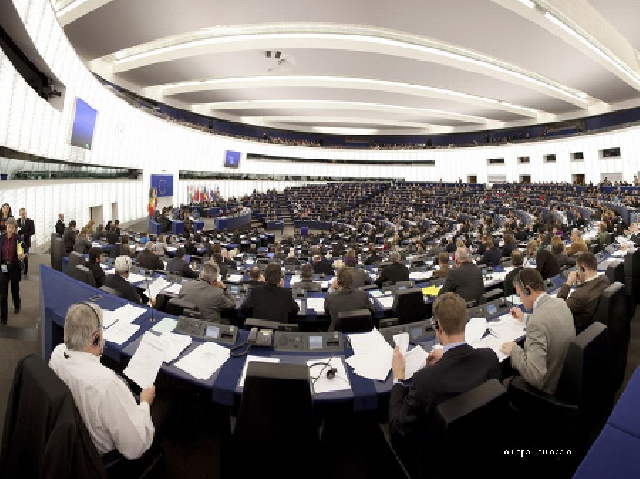EU Reform Scenarios
European Commission President Jean Claude Juncker spoke to the plenary session of the European Parliament about five possible scenarios for the future of the EU

Corina Cristea, 10.03.2017, 13:12
European Commission President Jean Claude Juncker spoke to the plenary session of the European Parliament about five possible scenarios for the future of the EU faced with losing Great Britain. The five scenarios were included in a so-called White Paper, which analyzes the way in which Europe can change in the next 10 years. The analysis runs from the impact of new technologies on society and jobs to doubts on the impact of globalization, rising populism and security challenges. The document will be handed to European leaders meeting this month in Italy on March 25, the 60th anniversary of the Treaty of Rome, which created the European Union. This is the beginning of a debate meant to draw the path of a smaller European Union. European Commissioner for Regional Policy Corina Cretu spoke about the importance of the moment and its possible implications for Romania.
Corina Cretu: “The Commission, through President Juncker, presented the members states with a number of credible options, in order to further consolidate the unity of the 27 member states. I believe this is the moment to talk about the future of the EU. Of these five scenarios, there are things that are worrying to us as a country, but at the same time the advantage is that, for the first time in our history as an EU member, Romanias opinion counts, it has the possibility of joining alliances, of opting for one of the five scenarios. This is just the beginning of an intense, honest debate on our future, and I believe this is the moment to make the effort of listening to citizens.”
One of the five scenarios presented by the head of the European Commission is that in which Europe focuses once again on the single market, in case the 27 member states are unable to reach common ground in a variety of areas. Another scenario is that in which member states do more for the community, expanding shared tasks and accelerating decision making within the union. Between the two extremes there are intermediate versions, one of them being that of a multi-speed Europe. Oana Popescu, head of Global Focus, told us what is needed to make such a decision.
Oana Popescu: “There are unfinished things, such as the reforms in the Eurozone and the consolidation of the single market and integration, beyond, lets say, political cohesion, which has had shortcomings of late. Brexit has accelerated these things and has brought to the surface some divisions and flagrant points of disagreement. It seems to me this is the moment to stop dodging issues, and say there are problems and that we need to find solutions now, not put things off, which is unfortunately something that the EU is very good at. It is a complex mechanism of negotiation between states. The result of that is, as President Juncker rightly pointed out, that Asia gallops forward, while the EU risks lagging far behind, because we are pondering decisions and solutions until they become moot, and we no longer need to make and find them, because we got overrun by events.”
In the opinion of the European Commissioner Cretu, Romania is better off with a more united Europe:
“First of all, there are several risk factors in these scenarios. There is the risk of alienating some portions of society. There are difficulties in reaching a consensus on priority areas. There is also the risk of a so-called re-nationalization in certain areas. Some of the EU citizens rights and freedoms, in this two-speed Europe, may no longer be guaranteed by community legislation, and will depend on the place people live in, which, in my opinion is inadmissible. Therefore, it is very clear that, for us, the sole solution is to march forward together, making allies and friends, and trying to show that the rights of EU citizens at present are guaranteed by the EU legislation, and will not be curtailed in the future.”
The idea of a multi-speed Europe, preferred by the Benelux countries, has strong support from France, Germany, Italy and Spain. Countries opposed to the concept, besides Romania, are those worried that they might become second tier countries, such as Hungary, Poland, the Czech Republic and Slovakia.





























